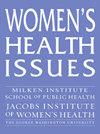Fertility Intentions and Histories Among Transgender Adults Who Started Gender-Affirming Testosterone Before Adulthood
IF 2.5
2区 医学
Q2 PUBLIC, ENVIRONMENTAL & OCCUPATIONAL HEALTH
引用次数: 0
Abstract
Background
As more transgender adolescents and young adults seek gender-affirming care, questions persist about how their desire for potentially fertility-affecting treatment intersects with their fertility intentions.
Methods
We surveyed 125 individuals born with a uterus and ovaries, living in the United States, initially prescribed gender-affirming testosterone at or before age 18, about their interest in genetically related children and history of fertility preservation and fertility-affecting procedures.
Results
Twenty-two percent of respondents did not want children, and 47% wanted children but did not think a genetic relationship was important. Another 8% indicated having genetically related children was important and 17% indicated they did not know. Only 47% recalled counseling about fertility preservation. Those who might want genetically related children were less satisfied when they did not recall counseling (p = .001). Significantly more people in the group who might want genetically related children still had one or both ovaries (100% vs. 86%; p = .03), desired to carry a pregnancy in the future or were unsure (30% vs. 8%; p = .01), and either desired to use their eggs for genetically related children or were unsure (93% vs. 26%; p < .001).
Conclusions
More than one-half of individuals prescribed gender-affirming testosterone as adolescents had no interest in genetically related children. Those who were interested in genetically related children were more likely to have other fertility-preserving interests and behaviors, including potentially desiring a pregnancy and still having one or both ovaries. This finding suggests that fertility-related behaviors of individuals prescribed gender-affirming testosterone are in line with their stated goals.
在成年前开始使用性别确认睾酮的跨性别成年人的生育意向和历史。
背景:随着越来越多的跨性别青少年和年轻人寻求性别确认治疗,关于他们对可能影响生育的治疗的渴望与他们的生育意图如何交叉的问题仍然存在。方法:我们调查了125名出生时就有子宫和卵巢的人,他们生活在美国,在18岁或18岁之前开始使用性别确认睾酮,了解他们对遗传相关儿童的兴趣以及生育能力保存和生育影响手术的历史。结果:22%的受访者不想要孩子,47%的人想要孩子,但认为遗传关系并不重要。另有8%的人表示有基因相关的孩子很重要,17%的人表示他们不知道。只有47%的人回忆起关于保留生育能力的咨询。那些可能想要有遗传关系的孩子的人,当他们不记得咨询时,满意度较低(p = .001)。在那些可能想要有遗传关系的孩子的人群中,明显更多的人仍然有一个或两个卵巢(100%比86%;P = .03),希望将来怀孕或不确定(30% vs. 8%;P = 0.01),或者希望将其卵子用于遗传相关的儿童,或者不确定(93% vs. 26%;结论:超过一半的人在青少年时期服用了性别确认睾酮,他们对有基因关系的孩子没有兴趣。那些对有遗传关系的孩子感兴趣的人更有可能有其他保持生育能力的兴趣和行为,包括潜在地希望怀孕,但仍然拥有一个或两个卵巢。这一发现表明,服用性别确认睾酮的个体的生育相关行为符合他们的既定目标。
本文章由计算机程序翻译,如有差异,请以英文原文为准。
求助全文
约1分钟内获得全文
求助全文
来源期刊

Womens Health Issues
Multiple-
CiteScore
4.50
自引率
6.20%
发文量
97
审稿时长
32 days
期刊介绍:
Women"s Health Issues (WHI) is a peer-reviewed, bimonthly, multidisciplinary journal that publishes research and review manuscripts related to women"s health care and policy. As the official journal of the Jacobs Institute of Women"s Health, it is dedicated to improving the health and health care of all women throughout the lifespan and in diverse communities. The journal seeks to inform health services researchers, health care and public health professionals, social scientists, policymakers, and others concerned with women"s health.
 求助内容:
求助内容: 应助结果提醒方式:
应助结果提醒方式:


